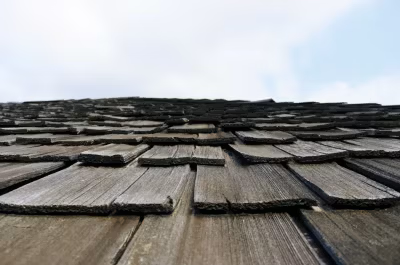Water damage can be a real nightmare for property owners, whether it's due to a burst pipe, a leaky roof, or a natural disaster. Not only does it wreak havoc on the structure of your property, but it can also lead to significant financial losses if not handled properly.
In Colorado, where the climate can be unpredictable and water damage is a common concern, understanding the ins and outs of the insurance claims process is crucial for real property owners. This guide will walk you through the essential steps to navigate water damage claims effectively.
Understanding Your Insurance Policy
Before delving into the claims process, it's essential to understand what your insurance policy covers regarding water damage. Policies can vary significantly, so take the time to review your coverage carefully.
What's Typically Covered
Typically, homeowners' insurance covers sudden and accidental water damage, such as:
Burst pipes
Appliance malfunctions
Roof leaks from storm damage
What May Require Additional Coverage
However, coverage for water damage caused by flooding or neglect may require additional policies, such as flood insurance. Knowing your coverage limits and exclusions upfront can prevent surprises and help you make informed decisions during the claims process.
For comprehensive guidance on protecting your property investment, consider reading our tips for protecting your investment from a Colorado construction defect lawyer.
Act Promptly After Discovering Water Damage
When water damage occurs, time is of the essence. Acting quickly can mitigate further damage and improve the likelihood of a successful insurance claim.
Immediate Steps to Take
As soon as you discover water damage:
Stop the source of water (shut off main water valve or cover leaky roof)
Document the damage thoroughly with photographs or videos
Begin cleanup efforts only after documenting everything
Contact your insurance company immediately
Keep a record of all communication with your insurance company, including claim numbers and adjuster contact information, for reference throughout the process. For more detailed guidance, see our article on what to do after discovering property damage.
Mitigate Further Damage
After documenting the initial damage, your next priority should be to mitigate further harm to your property.
Essential Mitigation Steps
This may involve:
Extracting standing water
Drying out affected areas
Preventing mold growth
Enlisting professional restoration services for extensive damage
Keep detailed records of all mitigation efforts, including receipts for services rendered, as these expenses may be covered by your insurance policy.
File Your Insurance Claim
Once you've taken steps to mitigate further damage, it's time to file a claim with your insurance company.
What to Prepare
Contact your insurer as soon as possible and be prepared to provide:
Detailed information about the cause of the damage
The extent of the loss
Steps you've taken to mitigate further damage
Your insurance company will likely assign an adjuster to assess the damage and determine the value of your claim. Cooperate fully with the adjuster and provide any additional documentation or information they request promptly.
Document Everything Throughout the Process
Throughout the claims process, documentation is key to protecting your interests.
What to Keep Track Of
All communication with your insurance company (phone calls, emails, letters)
Notes during conversations with adjusters, including date, time, and content
Copies of all claim-related documentation (estimates, invoices, receipts)
This paper trail can be invaluable if disputes arise during the claims process. Understanding late notice rules for Colorado insurance claims can also help protect your claim.
Review Your Settlement Offer Carefully
Once your insurance company has assessed the damage, they will provide you with a settlement offer.
Evaluating the Offer
Review this offer carefully to ensure it accurately reflects the extent of your losses. If you believe the offer is inadequate, don't hesitate to:
Negotiate with your insurance company
Seek assistance from a public adjuster
Consult with legal counsel
Remember, you have the right to dispute a settlement offer if you believe it doesn't fully compensate you for your losses.
When to Consider Legal Options
If you encounter difficulties with your insurance company or believe your claim has been unfairly denied or undervalued, you may need to explore legal options.
How an Insurance Claim Lawyer Can Help
An experienced insurance claim lawyer can:
Navigate the complexities of insurance law
Advocate for your rights
Negotiate with your insurance company
File a lawsuit if necessary
Represent you in mediation or arbitration
Understanding insurance bad faith in Colorado property disputes can help you recognize when legal intervention may be necessary.
Conclusion
Water damage claims can be complex and stressful, but with the right knowledge and preparation, real property owners can navigate the process successfully. By understanding your insurance policy, acting promptly to mitigate damage, and documenting everything thoroughly, you can improve the likelihood of a favorable outcome.
If you encounter difficulties during the claims process, don't hesitate to seek assistance from a qualified insurance claim lawyer who can advocate for your rights and help you obtain the compensation you deserve. With the proper guidance and support, you can overcome the challenges of water damage and restore your property to its former glory.
Have Questions About Insurance Disputes?
Our experienced construction defect attorneys are here to help. Schedule a free 15-minute screening call to discuss your situation.




